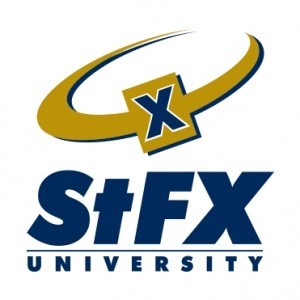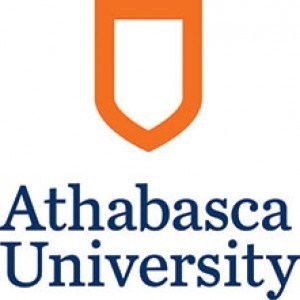Photos of university / #stfxuniversity
The Bachelor of Science in Physics at St. Francis Xavier University offers students a comprehensive foundation in the fundamental principles governing the universe. This program is designed to develop strong analytical and problem-solving skills through a rigorous curriculum that combines theoretical concepts with practical applications. Students will explore core topics such as classical mechanics, electromagnetism, thermodynamics, quantum mechanics, and statistical mechanics, gaining a deep understanding of physical laws and their real-world implications. The program also emphasizes laboratory work, enabling students to acquire essential experimental skills and learn to interpret data accurately. In addition to the core physics courses, students have opportunities to take electives in related fields such as mathematics, computer Science, and astronomy, broadening their scientific perspective and enhancing their versatility for diverse career paths. The faculty at St. Francis Xavier University are experienced researchers dedicated to providing personalized mentoring and fostering a collaborative learning environment. Students are encouraged to engage in research projects, internships, and extracurricular activities that promote curiosity and innovation. The program prepares graduates for various careers in research, education, engineering, technology, and applied sciences, or for further studies at the graduate level. With small class sizes and a supportive community, the Physics program at St. Francis Xavier University ensures that each student receives individual attention and guidance throughout their academic journey. Graduates leave equipped with not only profound scientific knowledge but also critical thinking, quantitative reasoning, and problem-solving skills essential for success in a rapidly evolving scientific landscape.
Physics at St. Francis Xavier University offers a comprehensive and rigorous program designed to develop students' understanding of the fundamental principles governing the universe. The program emphasizes both theoretical foundations and practical applications of physical sciences, preparing students for diverse careers in research, industry, education, and more. Students will explore core areas such as classical mechanics, electromagnetism, thermodynamics, quantum mechanics, and modern physics, gaining a solid grounding in scientific principles and analytical skills. The curriculum includes laboratory work, computational modeling, and research projects that foster critical thinking, problem-solving abilities, and hands-on experience. Throughout the program, students are encouraged to participate in seminars, workshops, and research initiatives, collaborating with faculty renowned for their expertise in various fields of physics. The Bachelor of Science in Physics at St. Francis Xavier University also offers specialization options and opportunities for interdisciplinary study, allowing students to tailor their education to their interests and career goals. Faculty members are dedicated to mentoring students and promoting a vibrant academic community. Graduates of the program are well-equipped for careers in scientific research, engineering, teaching, data analysis, or for further graduate studies. With a strong emphasis on inquiry, experimentation, and innovation, the Physics program at Saint Francis Xavier University aims to cultivate the next generation of scientists and informed citizens with a deep appreciation for the natural world.
Program Requirements:
The Bachelor of Science in Physics at St. Francis Xavier University requires students to complete a comprehensive curriculum designed to provide a strong foundation in both theoretical and experimental physics. Students must successfully complete a total of 40 courses over the duration of the program, including core Physics courses, mathematics courses, and elective options. The core Physics courses typically include Classical Mechanics, Electromagnetism, Quantum Mechanics, Thermodynamics and Statistical Mechanics, and Modern Physics. In addition to these, students are encouraged to take laboratory courses that enhance practical skills and hands-on experience in experimental techniques.
Mathematics is integral to Physics study at St. Francis Xavier University, and students are expected to complete courses such as Calculus I, II, and III, and Differential Equations. These courses provide essential mathematical tools required for understanding advanced physical theories. Students also have the flexibility to choose electives within the Physics department or in related disciplines such as Chemistry or Computer Science to broaden their scientific perspective.
A minimum GPA requirement is set for progressive progression through the program. Students must maintain at least a 2.0 GPA to continue enrolled in the program and to be eligible for graduation. Laboratory work and practical assessments are core components, and students must demonstrate proficiency in experimental procedures, data analysis, and scientific reporting.
In the final year, students are required to undertake an original research project or thesis under the supervision of a faculty member. This thesis involves extensive research, data collection, and analysis, culminating in a written report and presentation. The program emphasizes critical thinking, problem-solving, and research skills, preparing graduates for careers in academia, industry, or further graduate study.
To graduate with a Bachelor of Science in Physics, students must also fulfill certain university-wide requirements, including completion of general education courses, such as those in Humanities and Social Sciences, ensuring a well-rounded academic experience. The program aims to develop both theoretical understanding and practical skills essential for understanding physical phenomena and applying this knowledge in various scientific and technological contexts.
The Physics program at St. Francis Xavier University offers various financing options to support students throughout their studies. Undergraduate students primarily finance their education through a combination of provincial and federal government grants, scholarships, bursaries, and work-study opportunities. The university provides entrance scholarships based on academic achievement, as well as dedicated awards for students demonstrating financial need. In addition, students may be eligible for external scholarships from government agencies and private organizations, which can significantly offset tuition costs. The university also participates in work-study programs that enable students to earn income through on-campus employment, helping to reduce financial burdens while gaining valuable experience. International students seeking to study physics at St. Francis Xavier University can explore external scholarship options available to international students, as well as any institutional awards for which they may qualify. Graduate students in physics typically receive funding packages that include teaching assistantships, research assistantships, and fellowships, which cover tuition fees and provide a living stipend. These funding opportunities are designed to attract talented students and support their research activities. The university’s financial aid office provides comprehensive guidance on application procedures and eligibility criteria for various funding sources. Moreover, students are encouraged to apply early to maximize their chances of securing financial support. Overall, St. Francis Xavier University is committed to making physics education accessible by offering a variety of financial aid options, ensuring that capable students can pursue their academic goals regardless of economic background.
The Bachelor of Science in Physics at St. Francis Xavier University offers students a comprehensive education in the fundamental principles governing the natural world. The program is designed to develop students' understanding of classical mechanics, electromagnetism, thermodynamics, quantum mechanics, and modern physics, providing a solid foundation for careers in research, industry, teaching, or further studies in graduate and professional schools. Students benefit from a rigorous curriculum that combines theoretical coursework with practical laboratory experiences, fostering skills in scientific analysis, problem-solving, and critical thinking. The program often includes opportunities for undergraduate research projects, allowing students to engage in active inquiry and contribute to ongoing scientific investigations. Collaboration with faculty members who are active researchers in fields such as astrophysics, condensed matter physics, and nuclear physics enhances the learning environment and exposes students to current developments in the field. Additionally, the program emphasizes the importance of mathematics as a tool for understanding physical phenomena, and students typically take courses in calculus, linear algebra, and differential equations as prerequisites for advanced physics classes. The university's facilities, including modern laboratories and computing resources, support hands-on experimentation and simulation work essential for mastering complex concepts. Graduates of the physics program at St. Francis Xavier University are well-prepared for a diverse range of careers, including engineering, data analysis, education, and technological innovation. They also have the option to pursue graduate studies or professional training in physics, materials science, or related disciplines. Throughout the program, students are encouraged to develop strong communication skills, enabling them to effectively convey scientific ideas to both specialized and general audiences. Furthermore, the university's location and community environment offer students additional opportunities for involvement in science outreach and local research initiatives. Overall, the Physics program aims to cultivate not only technical expertise but also curiosity, creativity, and a lifelong passion for scientific discovery, positioning graduates for success in a rapidly evolving scientific landscape.

